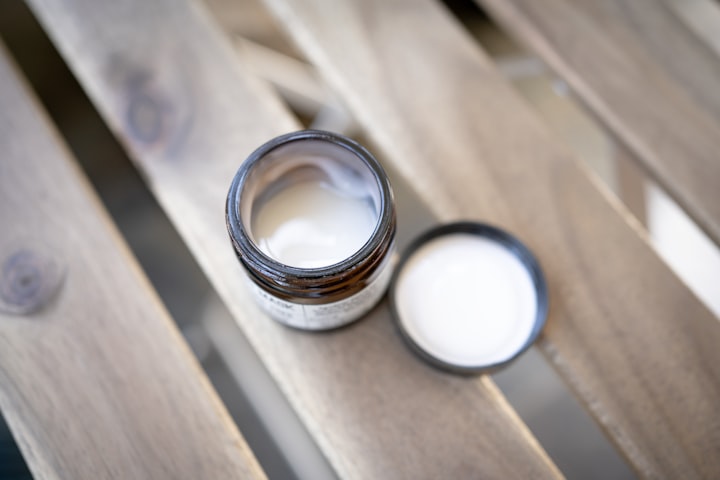7 Skincare Myths You Need to Stop Believing

Skincare myths are more common than you might think. They're whispered between friends, shared by influencers, and sometimes even perpetuated by brands hoping to sell the next big thing. These myths can sneak into our routines and steer us away from practices that genuinely benefit our skin. It’s time we separate fact from fiction and stop letting these misconceptions dictate how we care for one of our most important organs.
Evidence-based skincare isn’t just a buzzword; it’s a necessity for healthy, glowing skin. Making decisions based on well-researched information helps us tailor our beauty routines to what truly works rather than clinging to outdated or false beliefs. Understanding the science behind skincare empowers us to make choices that address individual needs effectively. This article will guide you through seven prevalent skincare myths, busting each with clear insights and practical advice so you can treat your skin with the respect it deserves. Dive in as we unpack these myths and revolutionize your beauty regimen!
Myth: All-Natural Products are Always Better
In an era where "natural" is often equated with safety and purity, the assumption that all-natural skincare products are inherently better can be misleading. The term "all-natural" is not regulated by any governing body, meaning it can be used broadly and inconsistently on product labels. Just because a product claims to be natural doesn't mean it's automatically safe or effective for your skin. Poison ivy is undoubtedly natural, but no one would recommend applying it to their face! Certain essential oils, though natural, may cause irritation or allergic reactions in some individuals.
Synthetic ingredients in skincare are often feared due to misconceptions about chemical formulations being harmful. However, many synthetic components have been scientifically designed to offer greater stability and efficacy than their natural counterparts. Take hyaluronic acid as an example: while naturally found in the body, the lab-created version used in skincare is highly refined and optimized for deep penetration and maximum hydration without the variability of extraction seen with its natural form. Retinoids, powerful anti-aging compounds derived from vitamin A, are another instance where synthetics outperform natural alternatives like rosehip oil when it comes to reducing wrinkles and improving skin texture visibly.
Ultimately, what matters most in skincare is the evidence supporting ingredient effectiveness and safety across different skin types. Rather than relying solely on labels that claim a product's natural status, look into research-backed formulations that prioritize high-quality ingredients regardless of their origin. Understanding the specific needs of your skin type and aligning them with well-formulated products will empower you to make more informed choices, unclouded by marketing buzzwords like "natural." Quality should always triumph over catchy slogans – after all, your skin deserves nothing less than the best care rooted in scientific validation.
Myth: You Don't Need Sunscreen on Cloudy Days
It's a common misconception that sunscreen is only necessary when the sun is blazing down from a cloudless sky. However, even on overcast days, up to 80% of ultraviolet (UV) radiation can penetrate clouds and reach your skin. This means that skipping sunscreen just because it's cloudy or cool outside still leaves your skin vulnerable to UV damage. Year-round exposure to UV rays can contribute significantly to premature aging - think fine lines, wrinkles, and age spots - as well as increase the risk of developing skin cancer.
The statistics underline the protective efficacy of regular sunscreen use quite starkly. Studies indicate that using an SPF 15 or higher daily reduces the risk of developing squamous cell carcinoma by about 40% and melanoma—the deadliest form of skin cancer—by approximately 50%. Additionally, sunscreen serves as one of your primary defenses against photoaging. In fact, consistent use of broad-spectrum SPF has been shown not only to prevent but also to reverse signs of existing photo damage when used alongside other sun-safe practices.
To ensure you’re protecting your skin effectively every day, consider incorporating sunscreen into your morning routine in a few simple ways. Opt for a moisturizer combined with SPF for efficiency if you're short on time; this ensures you're covered right after cleansing. Remember to apply at least a nickel-sized amount for the face alone and don't neglect areas like ears, neck, and hands which often show early signs of aging due to UV exposure. Moreover, reapplying every two hours—or more frequently if you're sweating or swimming—is crucial for sustained protection through any outdoor activity. By making these small changes in your routine, you safeguard not only your long-term appearance but also your health incontestably.
Myth: Oily Skin Doesn't Need Moisturizer
It's a common misconception that those with oily skin should avoid moisturizer to minimize shine and excess sebum production. However, skipping this crucial step can actually exacerbate the problem. When oily skin lacks hydration, it often compensates by producing even more oil to balance itself out. This counterproductive cycle can lead to clogged pores, increased breakouts, and an overall greasy appearance—all of which a proper moisturizing routine could help combat.
Opting for lightweight, non-comedogenic moisturizers is key for individuals with oily skin. These products are specifically designed to hydrate without blocking pores or adding extra slickness to your face. Ingredients like hyaluronic acid and glycerin are particularly effective because they attract moisture without leaving behind an oily residue. For instance, gel-based formulas offer hydration in a refreshing form that instantly absorbs into the skin, delivering much-needed moisture without the heaviness of traditional creams.
Hydration is essential for all skin types—including oily ones—because well-moisturized skin maintains its natural barrier function better than dehydrated skin does. Proper hydration helps regulate oil production and supports a healthy complexion. Think of it as sending your skin accurate signals about what it needs; when consistently hydrated, your skin is less likely to overproduce oil as compensation. Embracing daily moisturization tailored to your specific needs not only improves texture and appearance but also reinforces long-term skincare health. By recognizing the importance of choosing the right moisturizer for you, you'll foster clearer, balanced skin while dispelling outdated myths that suggest otherwise.
Myth: Expensive Skincare Products Work Better
There's a long-standing belief that the pricier a skincare product is, the more effective it must be. However, this myth fails to consider one crucial aspect—it's not the cost but the formulation of a product that determines its effectiveness. Many brands with hefty price tags focus on branding and packaging rather than proven ingredients and formulations. Meanwhile, scientifically backed active ingredients like retinoids, hyaluronic acid, and niacinamide can be found in products across all price ranges.
Lesser-known brands often invest heavily in quality formulations while maintaining affordability. For instance, products from drugstore brands frequently top consumer reviews due to their efficacy and accessibility. The Ordinary and CeraVe are just two examples of budget-friendly labels that develop formulations grounded in dermatological science without unnecessary frills or exorbitant costs. Their success stories show that effective skincare doesn't need to break the bank.
So how should you evaluate your skincare purchases more intelligently? Start by researching key active ingredients suited for your skin type and concerns instead of automatically trusting luxury brand promises. Look closely at ingredient lists, seek peer reviews or dermatologist recommendations, and don’t shy away from trying sample sizes before committing to full-sized products. Ultimately, skincare shopping should always prioritize evidence-based benefits over alluring price tags or fancy jars.
Myth: You Should Wash Your Face as Often as Possible
In a world where skincare routines can sometimes feel like an intricate art form, the notion that washing your face frequently is beneficial continues to surface. However, over-cleansing can be detrimental to your skin's health. Stripping away its natural oils too frequently disrupts the skin barrier, leaving it more vulnerable to irritation and environmental damage. This can result in an overproduction of sebum as your skin tries to compensate for the loss of moisture, leading ironically to more breakouts and oily skin – exactly what many people were trying to avoid.
When it comes to cleansing frequencies, there's no one-size-fits-all answer; everyone's skin has unique needs depending on factors such as type and daily activities. Dry or sensitive skin types might fare better with once-a-day cleansing routines, preferably at night to remove any makeup or pollutants accumulated throughout the day. On the other hand, individuals with oilier complexions may benefit from a gentle face wash both morning and evening. Listening to your skin’s signals is crucial; if you notice redness, tightness, or peeling after washing, it might be time to dial back.
Incorporating gentle cleansing techniques into your routine further minimizes irritation risks while maintaining effective skincare practices. Opt for lukewarm water instead of hot, which can exacerbate dryness and sensitivity issues. Choose sulfate-free formulas that maintain pH balance and avoid harsh scrubbing motions—your fingertips are entirely sufficient for massaging in products effectively without causing harm. By taking these mindful steps towards facial cleansing, you cultivate a caring habit that prioritizes both cleanliness and comfort for radiant results over time.
Myth: Chocolate Causes Acne
For years, chocolate lovers have been saddled with the guilt of associating their favorite treat with unwelcome breakouts. However, scientific research has not found a direct causal link between chocolate consumption and acne development. Studies have shown that factors such as hormonal fluctuations, stress, and genetics play a more significant role in acne than indulging in your favorite candy bar. While some studies suggest that certain components in milk chocolate or foods with high glycemic indexes might exacerbate existing acne conditions for some individuals, blaming chocolate entirely isn't supported by comprehensive scientific evidence.
When considering how diet influences skin health, it's important to look at the broader picture rather than pointing fingers at a single food item. Nutrition impacts the body on a systemic level, meaning that what you consume overall contributes to your skin's condition—not just the occasional piece of chocolate. Diets rich in fruits, vegetables, lean proteins, and whole grains nourish the skin by delivering essential vitamins and antioxidants. This holistic approach supports healthy skin function far more effectively than focusing exclusively on avoiding supposed 'acne-triggering' foods like chocolate.
Instead of swearing off chocolate forever based on unfounded fears of breakouts, consider practicing moderation and observing your body's responses carefully. For instance, if you notice flare-ups occur after eating specific foods—for example, dairy-rich or excessively sugary snacks—it's wise to monitor these patterns and adjust your diet accordingly. Developing an understanding of personal dietary triggers can empower you to make informed choices without unnecessary restrictions. Ultimately, maintaining a balanced diet tailored to meet your individual needs is key to supporting both general health and radiant skin.
Empower Your Skincare Routine with Truth
In concluding our dive into skincare myths, it's clear that debunking these misconceptions is crucial for developing healthier skincare habits. By understanding that all-natural isn't always superior and recognizing the underestimated power of sunscreen—even on cloudy days—you pave the way for smarter skincare choices. Whether you're wisely cutting through marketing noise to choose effective yet affordable products or learning that proper hydration benefits oily skin too, informed decisions become your greatest allies.
Empowerment in skincare comes from knowledge tailored to your unique needs. As you navigate products and practices, let evidence guide you—not hearsay. Remember, what works wonders for one might not suit another; personalize your approach while embracing research-backed truths. Armed with this wisdom, you're set to nurture not just your skin but your confidence in owning a routine crafted specifically for you.



Comments ()